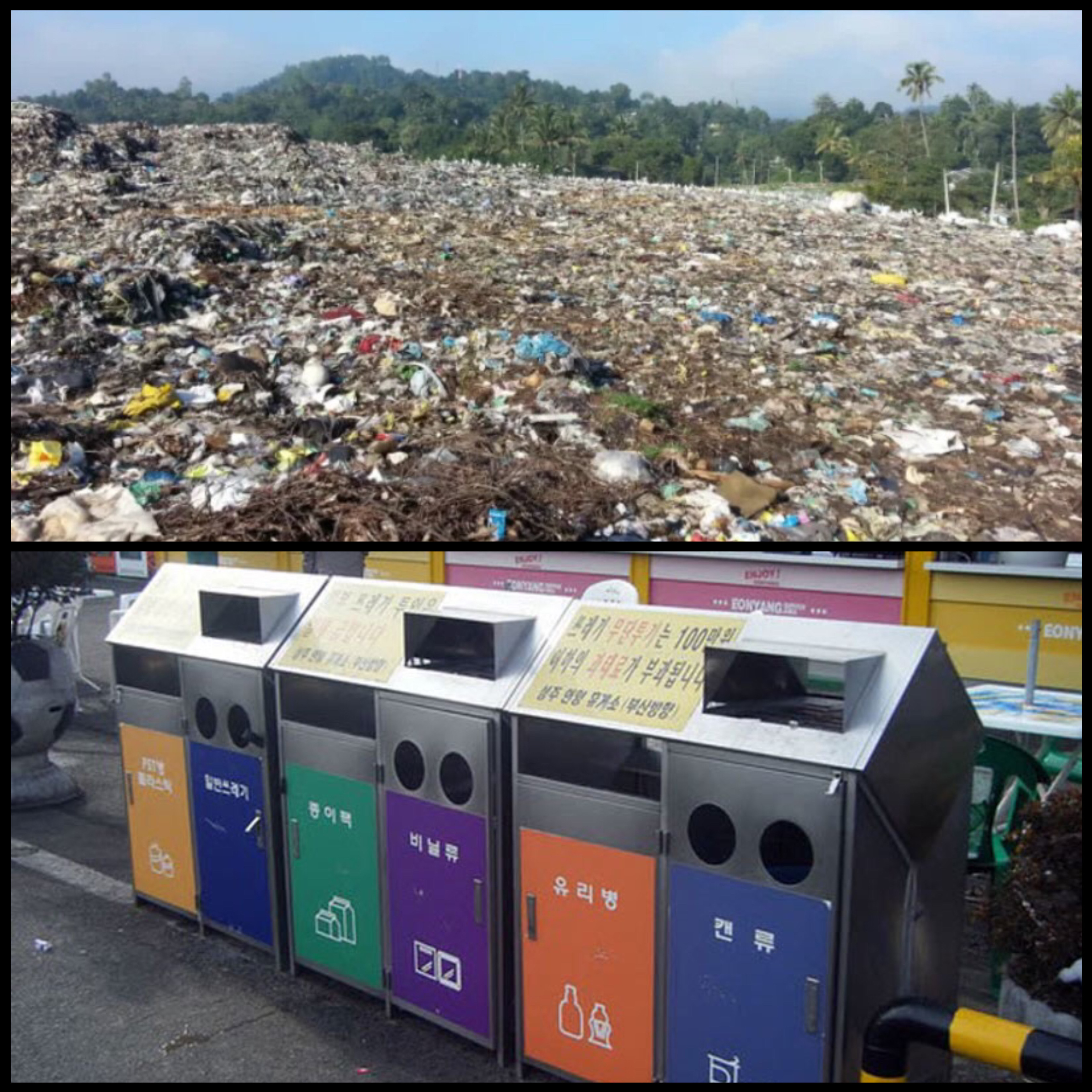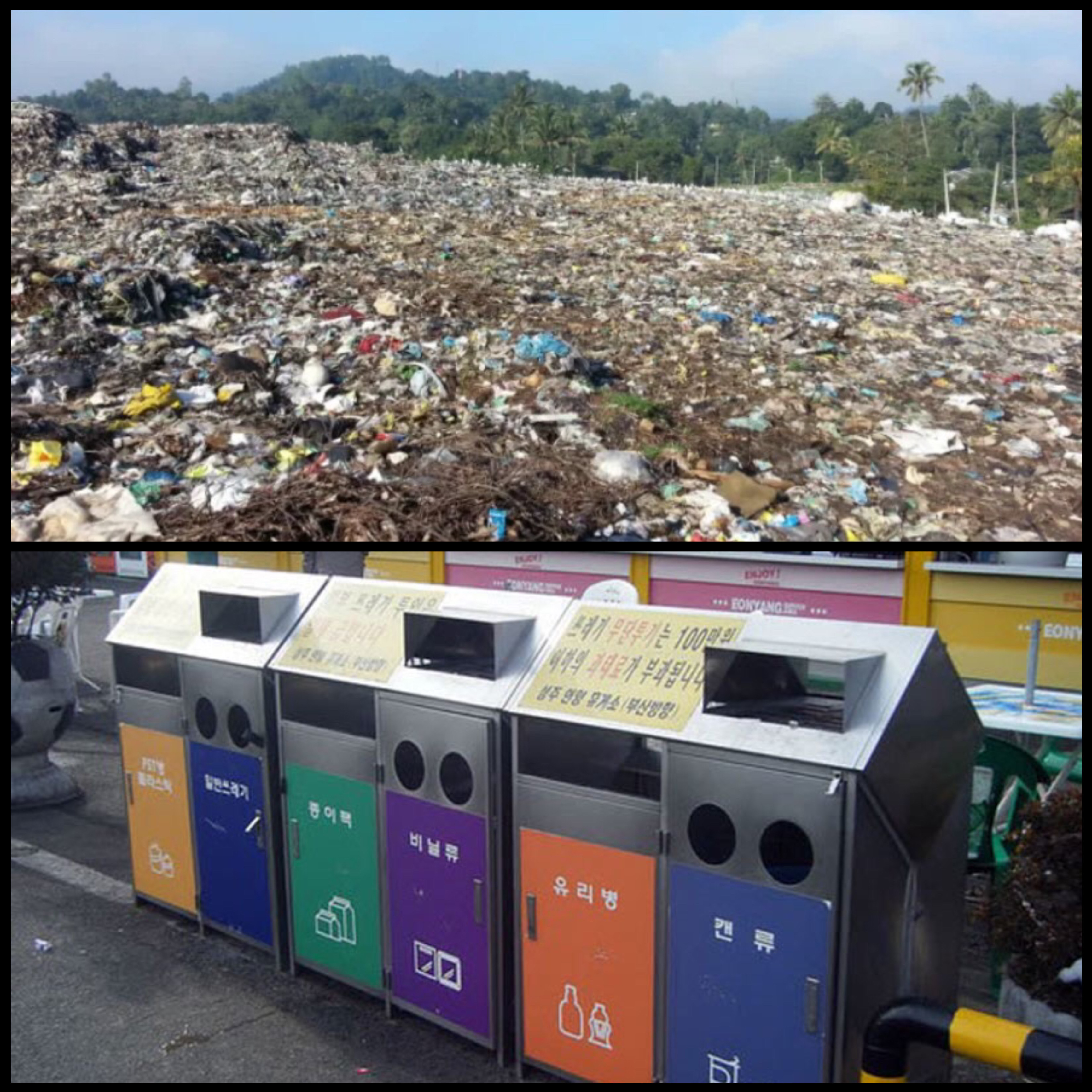페이지 정보
본문

Garbage disposal as a mitigation of the climate crisis in Sri Lanka vs…

Recorded by Supu
2023.05.21
Script
Hello Everyone, Today, let’s talk about the garbage disposal as a mitigation of the climate crisis in Sri Lanka vs. South Korea. In Sri Lanka, garbage disposal poses a significant environmental and public health challenge. The country faces issues related to inadequate waste management infrastructure and inefficient waste disposal practices. Sri Lanka relies heavily on traditional waste disposal methods such as open dumping and open burning, which can lead to pollution of land, water, and air. Waste collection systems in Sri Lanka vary across regions, with urban areas having more structured collection systems compared to rural areas. Municipal councils and local authorities are responsible for waste collection and disposal in their respective jurisdictions. However, the capacity to handle the growing amount of waste generated remains a challenge. In recent years, Sri Lanka has taken steps to improve waste management practices. The government has initiated waste separation programs to encourage households and businesses to segregate waste at the source. Recycling and composting initiatives have also been implemented to reduce the amount of waste sent to landfills. However, the overall recycling rate in the country is still relatively low. To address the issue of landfill capacity, Sri Lanka has explored the establishment of sanitary landfills in some areas. These landfills aim to reduce environmental contamination by implementing proper waste containment and control measures. However, the number of such facilities is limited, and many areas still rely on open dumping. South Korea has made significant progress in waste management and has implemented comprehensive systems to handle garbage disposal effectively. The country has adopted a systematic and efficient approach that includes waste separation, recycling, and waste-to-energy initiatives. South Korea has a well-established waste collection infrastructure, with separate bins for different types of waste such as recyclables, general waste, and food waste. Citizens are encouraged to sort their waste before disposal to maximize recycling and minimize landfill waste. Recycling is a key focus in South Korea's waste management strategy. The country has implemented an extensive recycling program with designated recycling centers and collection points for various materials, including paper, plastic, glass, and metals. The government provides financial incentives and subsidies to promote recycling and support the recycling industry. South Korea also emphasizes the proper treatment of food waste. The country has implemented a food waste recycling system where food waste is collected separately and processed into animal feed or used for biogas generation. In addition to recycling, South Korea has invested in waste-to-energy facilities. These facilities incinerate non-recyclable waste, generating electricity or heat. The waste-to-energy approach helps reduce the volume of waste sent to landfills and contributes to the country's renewable energy goals. Finally, we can find that South Korea's waste management practices demonstrate a strong commitment to efficient waste disposal, recycling, and resource recovery. The country's systematic approach and focus on recycling and waste-to-energy initiatives have resulted in significant improvements in waste management and environmental sustainability.
첨부파일
-
supus podcast.mp3 (8.9M)
0회 다운로드 | DATE : 2023-05-21 03:43:53
